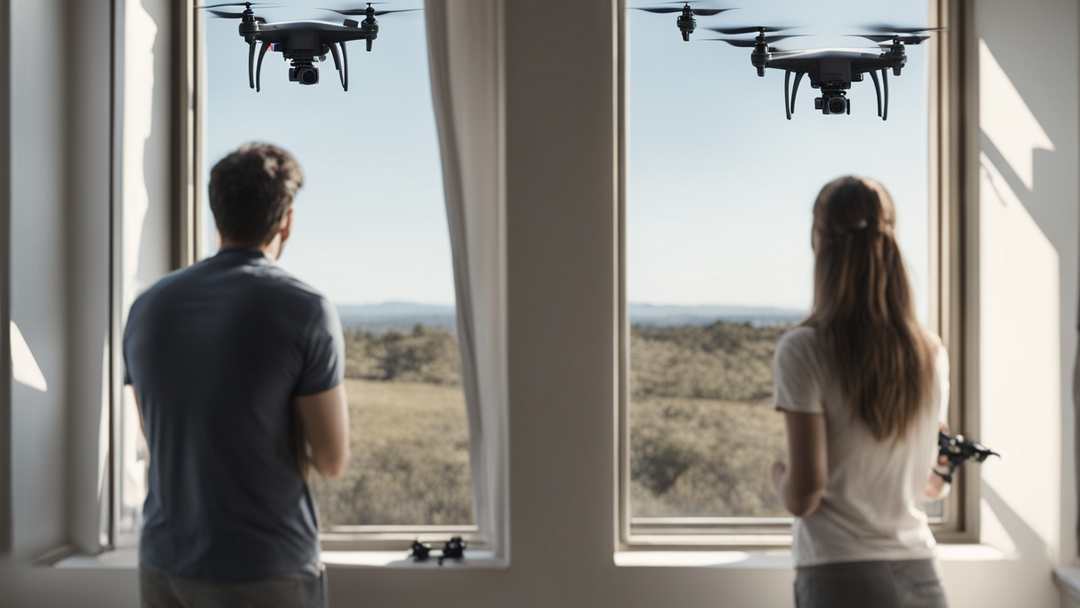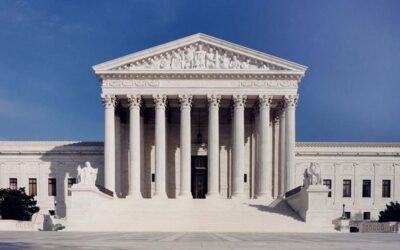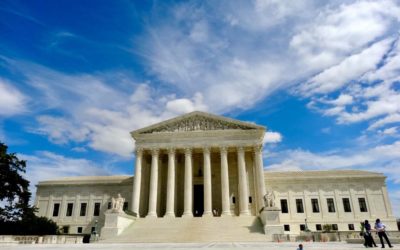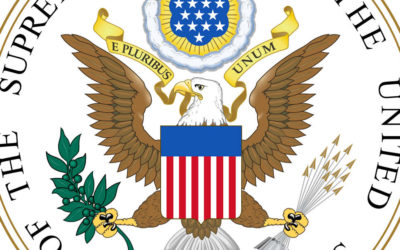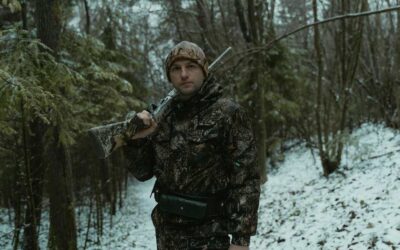Long Lake Township v. Maxon
The Costs Outweigh Benefits in Exclusionary Rule Application and the Slippery Slope of Fourth Amendment Protections
The recent decision by the Michigan Supreme Court in Long Lake Township v. Maxon represents a significant shift in the application of the exclusionary rule, particularly within the realm of civil enforcement proceedings. The Court held that the exclusionary rule, traditionally applied in criminal cases to deter police misconduct, does not extend to civil cases involving local zoning and nuisance ordinances.
This decision unequivocally reduces Fourth Amendment protections against government surveillance
This decision unequivocally reduces Fourth Amendment protections against government surveillance, raising concerns about privacy rights in an era of advanced technological surveillance methods such as drones.
This ruling highlights a broader trend of diminishing constitutional safeguards, emphasizing the slippery slope that ensues when fundamental rights are gradually eroded.
What’s the Case?
The case involved Long Lake Township using a drone to take aerial photographs and videos of the Maxons’ property to document alleged zoning violations. The Maxons moved to suppress this evidence, claiming it was obtained through an illegal search.
Although the trial court denied the motion and the appellate court initially sided with the Maxons, the Michigan Supreme Court ultimately decided that the exclusionary rule does not apply in this civil context.
The Court’s analysis focused on balancing the costs and benefits of applying the exclusionary rule, concluding that the societal costs outweighed any potential deterrence of future misconduct.
This decision not only reflects the narrowing scope of Fourth Amendment protections but also raises critical questions about the extent to which citizens’ privacy rights are safeguarded in an era of pervasive surveillance technologies.
The Fourth Amendment: A Historical Perspective
The Fourth Amendment of the United States Constitution provides:
“The right of the people to be secure in their persons, houses, papers, and effects, against unreasonable searches and seizures, shall not be violated, and no Warrants shall issue, but upon probable cause, supported by Oath or affirmation, and particularly describing the place to be searched, and the persons or things to be seized.”
Historically, the Fourth Amendment has been a cornerstone of American jurisprudence, aimed at protecting citizens from arbitrary government intrusions. Over the years, various landmark cases have shaped its interpretation:
- Katz v. United States (1967): The Supreme Court established that the Fourth Amendment protects people, not places, and introduced the “reasonable expectation of privacy” test.
- United States v. Jones (2012): The Court held that attaching a GPS device to a vehicle and using it to monitor the vehicle’s movements constitutes a search under the Fourth Amendment.
- Carpenter v. United States (2018): The Court ruled that accessing historical cell phone location records constitutes a search, and thus, a warrant is required.
These cases underscore the evolving nature of Fourth Amendment jurisprudence, especially in the face of new technologies that enable more intrusive forms of surveillance.
The Exclusionary Rule: Purpose and Application
The exclusionary rule, established in Weeks v. United States (1914) and applied to the states in Mapp v. Ohio (1961), mandates that evidence obtained in violation of the Fourth Amendment cannot be used in a court of law. The primary purpose of this rule is to deter police misconduct and to protect the integrity of judicial proceedings by excluding illegally obtained evidence.
However, its application has been primarily limited to criminal cases. The Supreme Court has been reluctant to extend the exclusionary rule to civil cases, as evidenced by decisions in cases like United States v. Janis (1976), where the Court held that the rule does not apply to civil tax proceedings.
Long Lake Township v. Maxon: Case Analysis
Facts:
- Long Lake Township filed a complaint against Todd and Heather Maxon, alleging violations of zoning ordinances and nuisance laws by storing junk cars on their property.
- Unable to view most of the Maxons’ property from the street, the township hired a drone operator to take aerial photographs and videos.
- The Maxons argued that the drone surveillance constituted an illegal search under the Fourth Amendment and moved to suppress the evidence.
Procedural History:
- The trial court denied the motion to suppress, stating the drone surveillance did not constitute a search.
- The Court of Appeals initially reversed this decision, holding that the drone surveillance violated the Fourth Amendment.
- The Michigan Supreme Court vacated the appellate decision and remanded the case to determine whether the exclusionary rule should apply.
- On remand, the Court of Appeals held that the exclusionary rule did not apply, and the Michigan Supreme Court affirmed this decision.
Legal Analysis
- Fourth Amendment Protections:
- The Fourth Amendment protects against unreasonable searches and seizures, typically requiring a warrant supported by probable cause.
- Historically, key cases like Katz v. United States and United States v. Jones have expanded the interpretation of what constitutes a “search” under the Fourth Amendment.
- Exclusionary Rule:
- Established in Weeks v. United States and applied to the states in Mapp v. Ohio, the exclusionary rule prevents evidence obtained in violation of the Fourth Amendment from being used in court.
- Its primary purpose is to deter unlawful police conduct and uphold judicial integrity.
- Application to Civil Cases:
- The Supreme Court has generally limited the exclusionary rule to criminal cases, with few exceptions such as civil asset forfeiture.
- In United States v. Janis and Immigration & Naturalization Serv v. Lopez-Mendoza, the Court declined to apply the exclusionary rule to civil tax and deportation proceedings, emphasizing the minimal deterrent effect and substantial social costs.
- Michigan Supreme Court’s Ruling:
- The Court applied a balancing test, weighing the costs and benefits of applying the exclusionary rule in this civil context.
- Costs:
- Difficulty in enforcing zoning ordinances without the drone evidence.
- Delay in addressing ongoing violations could harm community interests.
- Exclusion would hinder the township’s ability to maintain compliance with local laws.
- Benefits:
- Potential deterrence of intrusive government surveillance.
- However, minimal deterrence expected since the exclusionary rule primarily deters police misconduct, not actions by municipal officials in civil contexts.
- The case did not involve criminal penalties, reducing the relevance of the exclusionary rule.
- Distinguishing Factors:
- The Court differentiated this case from civil asset forfeiture and blood draw cases, noting that the former are quasi-criminal and involve substantial intrusions, respectively.
- The drone surveillance targeted the Maxons’ yard, an area with less privacy than a home or body, further diminishing the justification for exclusion.
Conclusion
The ruling in Long Lake Township v. Maxon marks a significant development in Fourth Amendment jurisprudence, particularly concerning the balance between individual privacy rights and government interests in civil enforcement. While the decision may streamline the enforcement of local ordinances, it raises critical questions about the erosion of constitutional protections in the face of advancing surveillance technologies. As drone usage becomes more prevalent, the legal community must grapple with these complex issues to ensure that fundamental privacy rights are not unduly compromised.
This case highlights the ongoing tension between technological advancements and constitutional safeguards, underscoring the need for vigilant judicial oversight and robust legal advocacy to protect individual liberties.
What all that means in one long sentence: The Court held that the exclusionary rule, traditionally applied in criminal cases to deter police misconduct, does not extend to civil cases involving local zoning and nuisance ordinances.
At Komorn Law, we specialize in navigating the complex landscape of constitutional law. This recent Supreme Court decision illustrates the nuanced legal analyses and strategic thinking that we bring to our practice, ensuring that our clients receive informed and effective representation.
Our commitment to understanding and influencing the trajectory of legal standards helps us advocate for a balanced approach to individual rights and public safety.
And now for something completely different….
Supreme Court Decision 23-939 Trump v. United States (07-01-2024) (PDF)
The nature of Presidential power entitles a former President to absolute immunity from criminal prosecution for actions within his conclusive and preclusive constitutional authority; he is also entitled to at least presumptive immunity from prosecution for all his official acts; there is no immunity for unofficial acts.
Recent
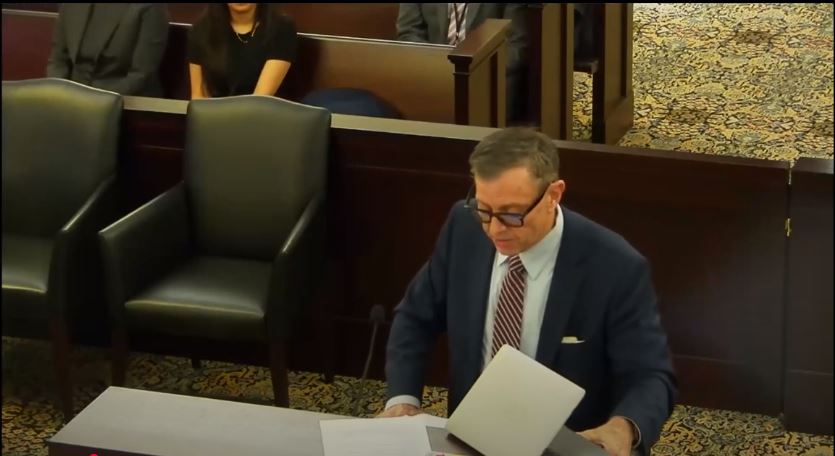
Forfeiture without Criminal Charges
Can the police seize your belongings and hold it without charging you with a crime?Read the summary below and watch Attorney Michael Komorn in the Court of Appeals.Summary of "Ruben Delgado v. Michigan State Police": This case was filed in the Jackson County Circuit...

Criminal Sexual Conduct (CSC) – Michigan
Criminal Sexual Conduct (CSC) in Michigan: Definitions, Penalties, and Legal References.Criminal Sexual Conduct (CSC) is a set of laws in Michigan that define and penalize various forms of sexual offenses. These laws are categorized into four degrees, with each degree...
Other Articles
Maker of CBD products asks court to decide
The Petitions of the Week column highlights a selection of cert petitions recently filed in the Supreme Court. A list of all petitions we’re watching is available here. Organized crime, from the mafia to small-time money laundering schemes, often evades criminal...
Supreme Court Ruling Strengthens First Amendment Protections: Implications for Michigan’s Threat Speech Laws
In a significant legal development, the United States Supreme Court has recently issued a ruling that has far-reaching implications for individuals facing charges related to "threat speech" in Michigan. The case of Counterman v. Colorado, decided on June 27, 2023,...
Listen Live to the US Supreme Court
Listen live to arguments in the Supreme Court. On Monday, the Supreme Court is set to hear arguments over the phone for the first time ever due to the coronavirus pandemic; they'll hear 10 cases remotely from now until May 13. But that's not the only history being...
US Supreme Court Press Releases Regarding the Justices and counsel will all participate remotely.
The US Supreme Court will hear oral arguments by telephone conference on May 4, 5, 6, 11, 12 and 13 in a limited number of previously postponed cases. The following cases will be assigned argument dates after the Clerk’s Office has confirmed the availability of...

